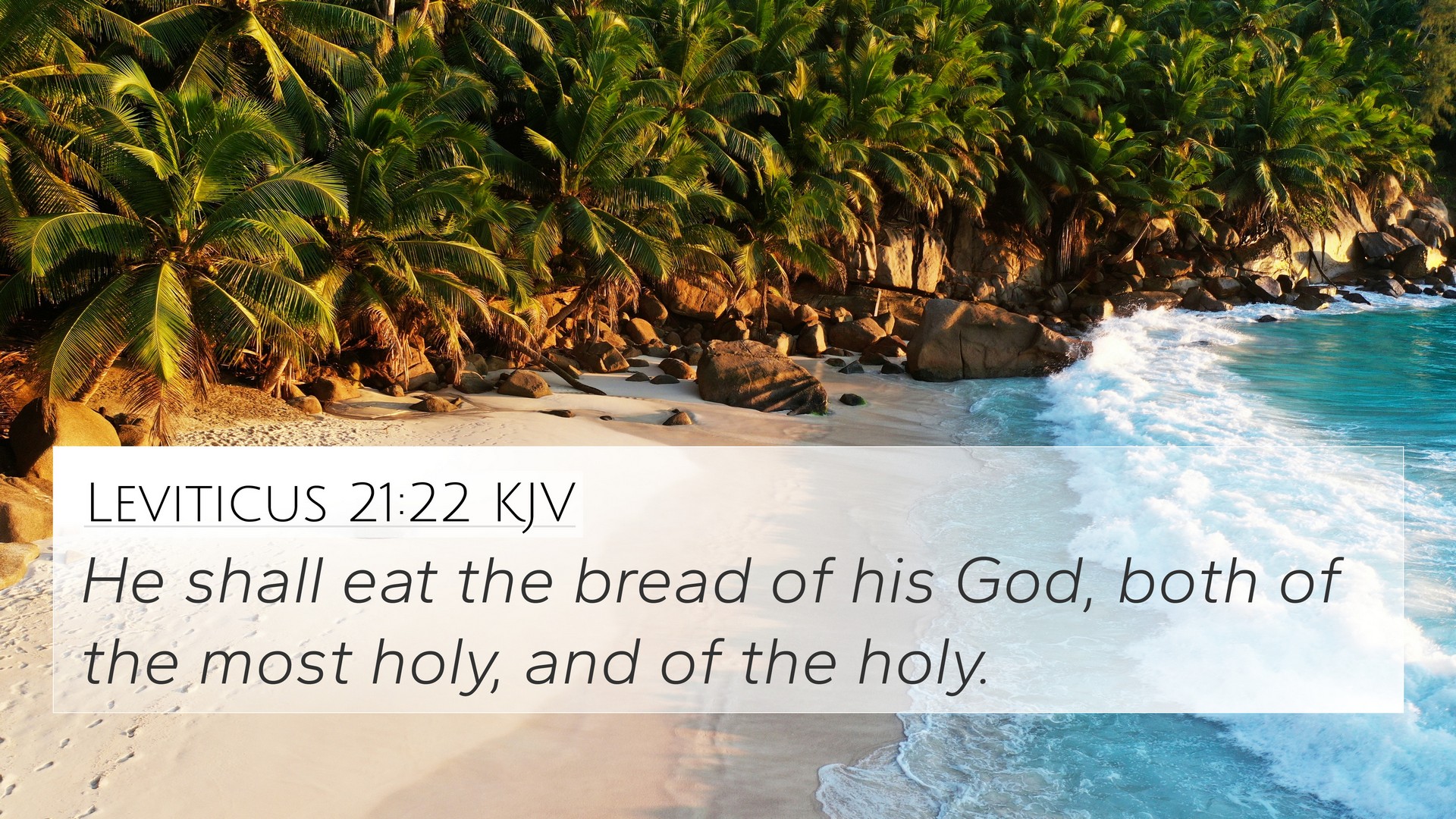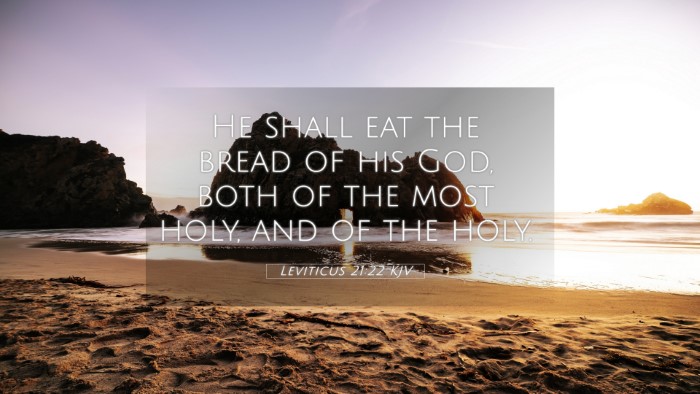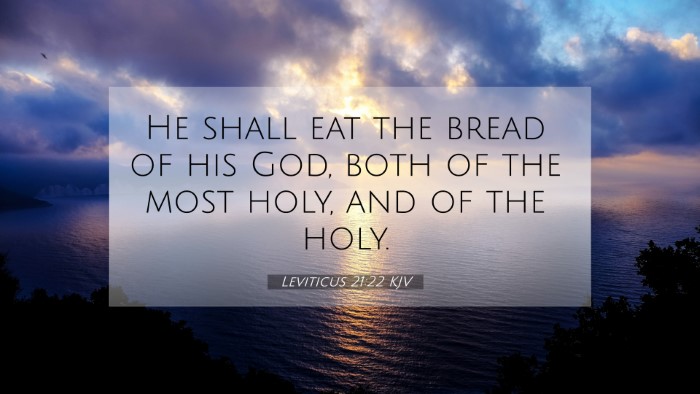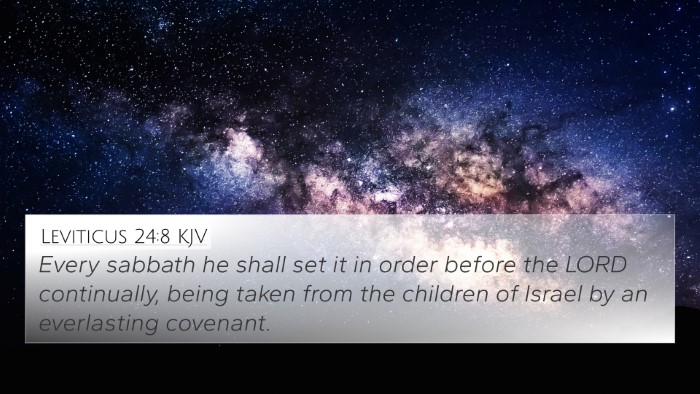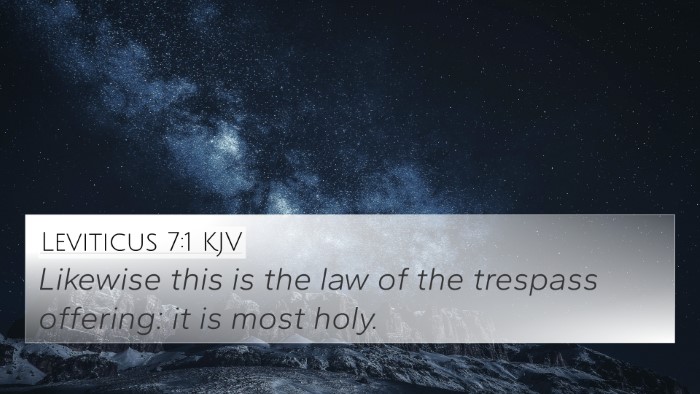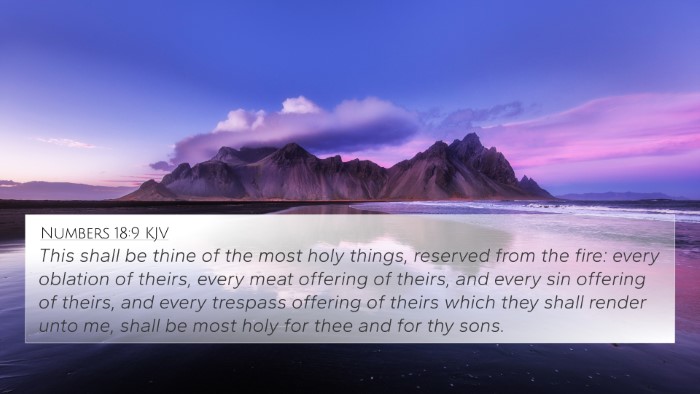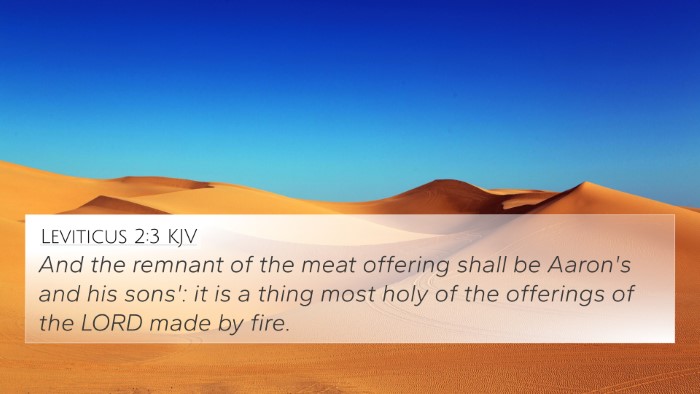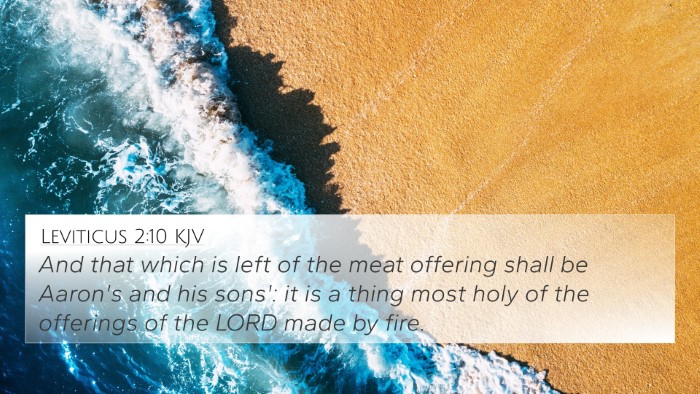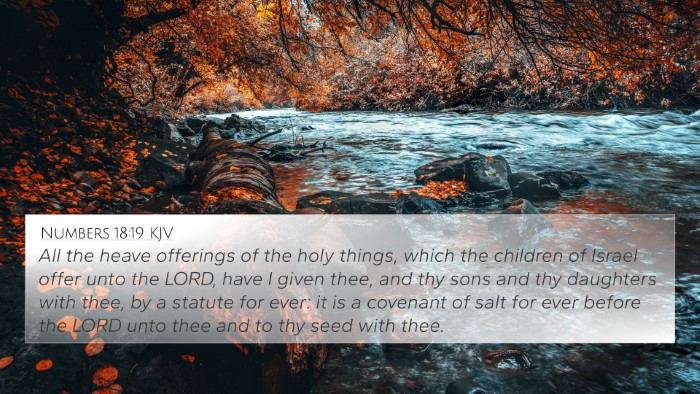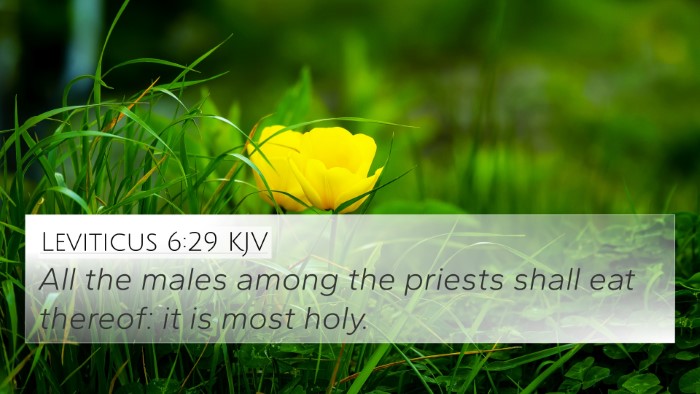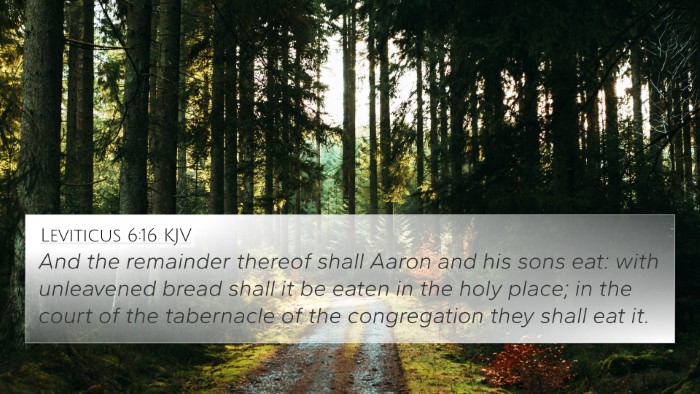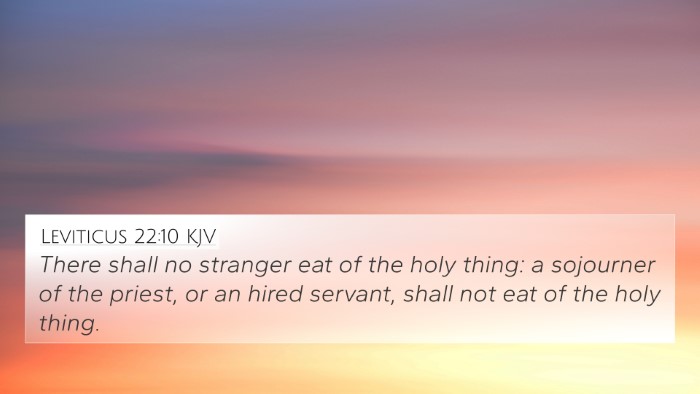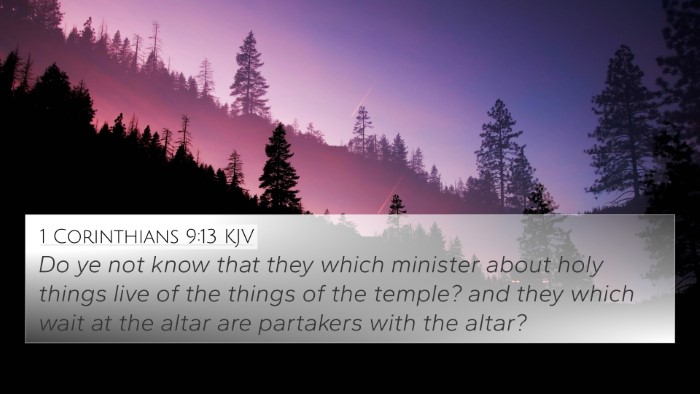Understanding Leviticus 21:22
Leviticus 21:22 states: "He may eat the bread of his God, both of the most holy and of the holy." This verse refers specifically to the priests in Israel, who were granted special privileges regarding food that is considered sacred within the religious context.
Meaning and Interpretation
The significance of this verse lies in the holiness of the priestly office and the exclusive rights granted to the priests concerning the offerings and food provided in the offerings. Here, we see several key insights derived from public domain commentaries:
-
Matthew Henry Commentary:
Henry emphasizes that the privileges granted to the priests stem from their position and the sacredness of their duties. He notes that the priests, separated for the service of God, must partake of the most holy things, which underlines the connection between their physical sustenance and their spiritual responsibilities.
-
Albert Barnes Notes:
Barnes suggests that the provision for the priests eating from the holy offerings underscores the idea of sharing in the divine blessings. He notes that this eating forms a part of their reward for their service and symbolizes their intimate relationship with God.
-
Adam Clarke's Commentary:
Clarke points out the importance of the distinction in terms of what can be eaten, explaining that the 'most holy' food is reserved solely for priests, reflecting their elevated spiritual status and their role as mediators between God and the people.
Connections to Other Bible Verses
This verse is intricately linked to several other scriptures, illustrating the broader themes of holiness and the sacred responsibilities of the priesthood. Consider the following cross-references:
- Exodus 29:33: This passage details the priests' right to share in the offerings, highlighting their sacred role.
- Leviticus 10:14-15: These verses elaborate on the priests' right to the offerings made by the people, reinforcing their spiritual privileges.
- Numbers 18:8-10: Here, God instructs the priests on the holy contributions, establishing their responsibility to maintain holiness while serving.
- Deuteronomy 18:1-2: This further clarifies the priests' inheritance and rights, emphasizing their divine provision.
- 1 Peter 2:9: In the New Testament context, Peter describes believers as a royal priesthood, connecting the Old Testament role of priests to the Christian understanding of spiritual privilege.
- Hebrews 5:1: This verse speaks to the role of the high priest being appointed for the people, reflecting God's ongoing desire for relationship through service.
- Malachi 1:6-8: This highlights the importance of honoring God in priestly duties and the offerings made to Him.
- Colossians 3:17: This echoes themes of service and the sacred nature of acts performed unto God by His people.
- Matthew 5:17-18: In relation to the law and its fulfillment in Christ, showing the continuity of God’s expectations of holiness.
- Revelation 1:6: This connects the concept of believers as a kingdom of priests, affirming the continuity of priestly themes throughout the Scriptures.
Thematic Connections
The main themes arising from Leviticus 21:22 include:
- Holiness: The uniqueness of the priestly office and the importance of maintaining holiness in service.
- Privilege: The special rights extended to the priests that denote their distinct status before God.
- Provision: The understanding that God provides for those dedicated to His service.
- Sacredness of offerings: The importance placed on what is offered to God and who is allowed to partake in those offerings.
- Spiritual nourishment: The understanding that priests drawing near to God and consuming holy things is a metaphor for spiritual health.
Conclusion
Leviticus 21:22 serves as a significant reminder of the roles and responsibilities of those serving God in a sacred capacity. The verse not only highlights the privileges of eating the bread of God but sets a foundation for understanding the deeper relational dynamics established between the divine and the priestly class, paralleling themes found throughout Scripture. Through cross-referencing various Bible verses, one can appreciate the connections and intricacies of God's Word, enhancing our understanding of scriptural themes and the continuity between the Old and New Testaments.
Utilizing tools for Bible cross-referencing and concordances helps in uncovering the depth of God's intention, facilitating deeper study and reflection. Ultimately, passages like Leviticus 21:22 inspire believers to recognize their identity in Christ and their call to live out a holy life in accordance with God's commands.
